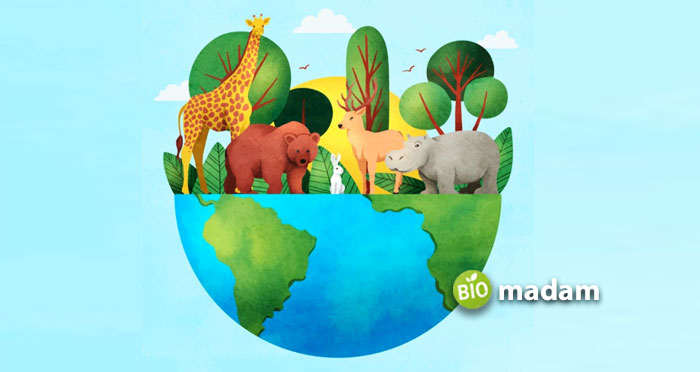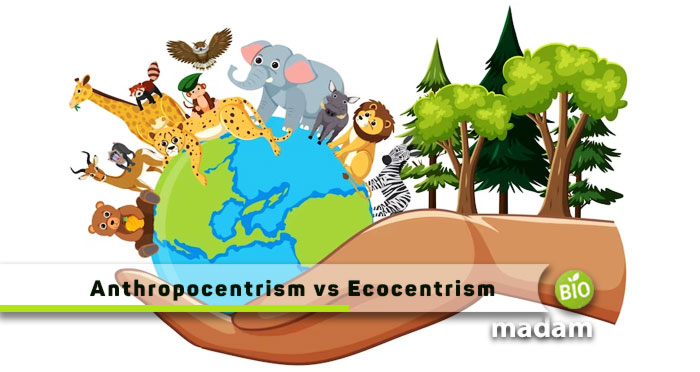The world has been a merged center of humanity and its surroundings for centuries. When biotic and abiotic components interact with each other through energy flows, this relationship brings in ethical, philosophical, and practical considerations. Just with these thoughts about how we view and interact with the natural world come two contrasting perspectives: anthropocentrism and ecocentrism.
The law of environments is looked upon from these two principles where the former is entirely human-centric, whereas the latter is focused on nature. People have different beliefs, so their dependency on these theories also varies. However, both come with their critiques and counterarguments. This article is all about telling you about anthropocentrism vs. ecocentrism and how these concepts are implicated in our system.
What to Know About Anthropocentrism?
The word “anthropocentrism” is derived from two Greek and ancient words: anthropos, meaning “human beings,” and kentron, meaning “center.” So, the main idea behind this theory was that humans are the most significant subject in the environment. This human-centered perspective of scientists states that we are the core of this natural world, and whatever, either biotic or abiotic component, is present here is to meet human needs.
In simpler words, from an anthropocentric perspective, anything in the world holds importance only when and insofar as it contributes to human desires. It initially came from Descartes’s philosophies, who said that the whole ball of wax is temporary and that human welfare will eventually benefit everyone. However, this idea definitely does not match what environmentalists say and believe.
Let’s break down some of its key features below:
- The anthropocentric concept gives nature its importance, but only when it values and provides resources to humans. For example, if humans get food through the natural food chain and food web and get shelter from the ecosystem, it prioritizes anthropocentrism.
- It isn’t wrong to say that anthropocentrism is spreading the idea of human exceptionalism. This scientific perspective sees humans as the most superior creation, resulting in the degradation of the environment.

Anthropocentric Impact on the Ecosystem
While anthropocentrism gives importance to mankind, it negates ecocentrism – another science perspective. This human-centered approach to the world is ultimately having a negative impact on the ecosystem, such as:
- It justifies the exploitation of the environment, resulting in practices like resource degradation, deforestation, overfishing, and pollution.
- When humans get all types of benefits through anthropocentrism, this idea prioritizes human interests for a short time. However, they do not see that these temporary benefits lead to long-term health effects on the biome and ecosystem.
- Last but not least, all these damages caused by humans will ultimately lead to the death of other non-human species.
What to Know About Ecocentrism?
Environmental philosophers and ecologists usually use the term ecocentrism, derived from two Greek words: oikos, meaning “house,” and kentron, meaning “center.” Opposite to anthropocentrism, ecocentrism places nature as the base of the ethical framework. This concept says that the Earth is the ultimate source of value where all beings are important, not just humans. Having said that, ecocentrism appreciates ecosystems, all types of biodiversity, and the interconnectivity of all life forms.
In contrast to anthropocentric belief, this perspective emphasizes the peace and harmony of humans with nature. It doesn’t look at the short-term benefits but considers and looks forward to the long-term consequences that human actions will have for the well-being of all species.
Let’s break down some of its key features below:
- This worldview gives a proper place to nature, saying that it is independent of what humans do. Every species and subspecies is considered valuable for their contribution to the world.
- Through ecocentrism, people can enjoy a more peaceful environment where every being, either living or non-living, is given respect, unlike anthropocentrism.

Ecocentric Impact on the Ecosystem
As we know, anthropocentrism gives importance only to human beings; ecocentrism does not follow the same rule. This nature-centered approach to the world ultimately had positive impacts on the ecosystem, such as:
- All species are given their rights and value.
- This concept of equality promotes long-term ecological sustainability and harmony for the entire world, not just humans.
- Many scientists believing in ecocentrism are of the view that there should be proper rights for nature and that they should be legally protected. It will have a good impact on the world, especially on humans, as protecting nature will promote good health.
- At last, ecocentrism promotes interdependency of all species living in an environment, thus preserving a balance in benefits of all life forms.
Anthropocentrism vs Ecocentrism – Key Differences
Primary Concept
Anthropocentrism
This theory, or what you may call an idea, places humans at the center of the world, saying that all the natural resources are for the welfare of humans.
Ecocentrism
On the other hand, ecocentrism equally values human beings and all other living or non-living entities of the environment. It states that the world and its resources are independent of each other, and not everything is solely for the benefit of humans.
Conservations
Anthropocentrism
The conservational rules of the world, according to anthropocentrism, are typically made with people in mind. Everything that is in the world is for the sake of providing benefits to humans and meeting their needs. This perspective promotes the belief that protecting the environment is essential only to serve humanity.
Ecocentrism
In contrast, the beliefs of ecocentric people are entirely opposite to anthropocentrism. This concept encourages preserving all life forms, eventually promoting equality in values for all species in an ecosystem. The ultimate goal is to maintain and protect biodiversity.
Ethical Considerations
Anthropocentrism
The ethical considerations of anthropocentrism are only limited to how humans and nature’s actions impact human well-being.
Ecocentrism
Contrary to this belief, ecocentrism extends its concepts to valuing even the non-human components of the world. It emphasizes protecting the integrity of biotic and abiotic factors of the ecosystem.
Approach toward Non-Human Species
Anthropocentrism
The anthropocentric approach towards non-human species is not valued as this idea is entirely human-centered.
Ecocentrism
Contrarily, an ecocentric approach towards non-human species is positive as it values and advocates the stability of the ecosystem.
Resource Management
Anthropocentrism
This concept is ultimately causing the destruction of the ecosystem as human benefits lead to overexploitation and resource depletion.
Ecocentrism
On the other hand, this concept promotes the sustainability of resource management and makes ways to protect the environment and the species living in it.
Counter Arguments
Anthropocentrism
As we know, anthropocentrism believes in using other organisms for the benefit of humans; it is overall considered an unethical concept.
Ecocentrism
Whereas ecocentrism stands on equality and emphasizes the long-term sustainability of the environment for the future, which is ultimately a good sign and ethical approach.

Is Ecocentrism Anti-human?
Some statements give the idea that ecocentrism is an anti-human approach; however, that is not so! It is not against people but more like caring for nature. An environmentalist who stands for this idea says we should protect biodiversity and take proper care of our surroundings besides valuing humans.
It is more like keeping a balance between nature and the people living in it. The idea is that when we take care of nature, it’s suitable for people, too, in the long run. So, ecocentrism is not anti-human but reminds us to be responsible for the environment.
Final Verdict
In the entire discussion, it is we who can make a difference. When discussing anthropocentrism and ecocentrism, they are different concepts with significant differences in focus. Anthropocentrism considers humans above all and as the center of importance, whereas, on the other hand, ecocentrism spreads the idea of valuing every species and non-living component.
We cannot consider anthropocentrism superior to ecocentrism as it is very obvious from the individual concepts! The ecocentric approach agrees with maintaining a balance between humanity and nature, which is a good sign. So, we as humans, should protect nature not only for our own benefit but to increase environmental peace.

Jeannie has achieved her Master’s degree in science and technology and is further pursuing a Ph.D. She desires to provide you the validated knowledge about science, technology, and the environment through writing articles.

